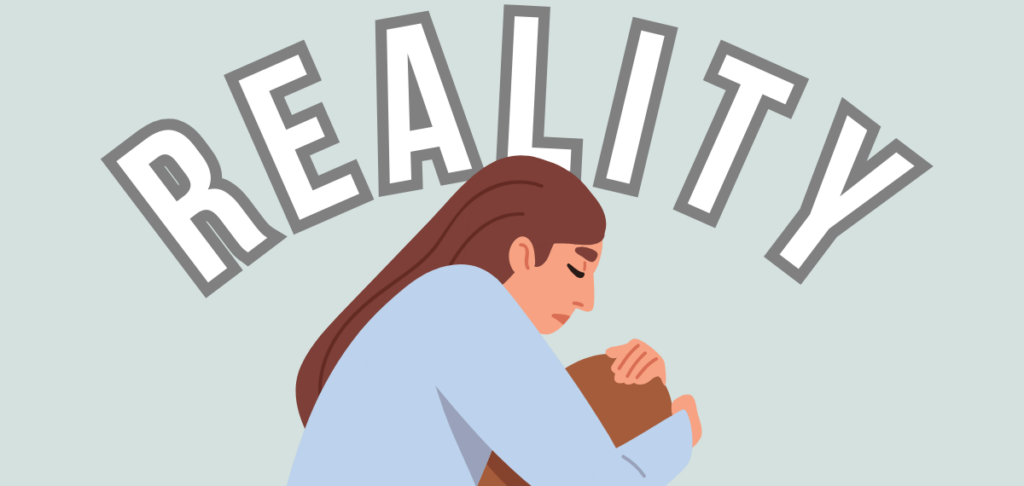A hard pill to swallow is an idiomatic expression that describes a difficult or unpleasant truth that may present a challenge to accept. It often indicates that accepting reality may be mentally or emotionally demanding.
Idioms like hard pill to swallow are expressions whose meanings aren’t directly derived from the words they contain. Instead, they have a figurative sense. Their use offers details and explanations, and learning what they mean and how they should be used can help you master the English language.
This guide details the idiom’s deeper meaning, origin, and correct usage. It also provides a few variations, related terms and phrases, sentence examples, and tips for effective usage. So, keep reading to learn more about the idiom hard pill to swallow, and then take the quick quiz at the end to test your newly acquired knowledge. Let’s go!

What Does the Idiom Hard Pill to Swallow Mean?
The idiom hard pill to swallow describes something that is difficult to accept. It implies that the information or realization is emotionally challenging or uncomfortable, akin to the difficulty some people may have in swallowing a large or bitter pill.
The Cambridge Dictionary defines a bitter pill to swallow as “something that is very unpleasant but must be accepted.” Moreover, Dictionary.com defines it as “an unpleasant fact, disappointment, or humiliation that is difficult to endure.”
Using the idiom doesn’t always provide a negative connotation, either. Instead, it can be used to explain reflection and personal development. For instance, it has been a bitter pill for me to swallow that the job I once loved is no longer the best fit for my future, and I need to consider new opportunities.
Variations of the Idiom
The most common variations of the idiom hard pill to swallow are bitter pill to swallow and tough pill to swallow.
How Is Hard Pill to Swallow Commonly Used in Context?
The idiom hard pill to swallow encapsulates the challenge of accepting a difficult or uncomfortable truth, fact, or situation. To delve into the nuanced applications of this expressive phrase, the following sections provide valuable insights:
What Are the Different Ways to Use the Idiom Hard Pill to Swallow?
- Describing a personal realization: It was a hard pill to swallow when I realized I had been wrong all along.
- Expressing a general truth: Sometimes, the truth can be a hard pill to swallow, but it’s necessary for personal growth.
- Highlighting a challenging fact: The statistics were a hard pill to swallow, revealing the harsh reality of the situation.
- Discussing a difficult decision: Ending the relationship was a hard pill to swallow, but it was the right choice for both of us.
- Addressing a widespread misconception: Accepting that your dream may not be achievable is a hard pill to swallow, but it allows you to pursue other opportunities.
- Referring to a disappointing outcome: Losing the championship was a hard pill to swallow, but we learned from our mistakes and will come back stronger.
- Expressing the difficulty of facing one’s flaws: Acknowledging my own mistakes and shortcomings was a bitter pill to swallow, but it led to personal growth.
- Discussing the challenges of accepting criticism: Receiving constructive criticism can be a tough pill to swallow, but it helps us improve in the long run.
- Highlighting the struggle of accepting a difficult truth: Realizing that I had wasted years on a misguided belief was a bitter pill to swallow, but it prompted me to make positive changes.
- Expressing the difficulty of accepting an unwelcome outcome: The election results were a tough pill to swallow for many, but we must respect the democratic process.
Where Can You Find Examples of the Idiom Hard Pill to Swallow?
You can find examples of the phrase hard pill to swallow in various written and spoken forms, including:
- Literature and novels
- News articles and opinion pieces
- Conversations or interviews
- Social media platforms
Online news publications commonly use the phrase when relating interviews or lighthearted tips:
“‘It’s gutting and a bitter pill to swallow for a few of us now. It’s sad for the tournament’: Heather Knight calls for ICC to include reserve days at future T20 World Cups after England were eliminated from semi-finals due to rain.” (The Daily Mail)
“That is a hard pill to swallow if you’re flying somewhere far for a quick spring break.” (The Michigan Daily)
What Are Some Tips for Using the Idiom Hard Pill to Swallow Effectively?
Remember, using the phrase hard pill to swallow effectively involves understanding its meaning. Consider these tips to help ensure your message is clear and concise:
- Context matters: Hard pill to swallow is typically used when referring to difficult truths or realities.
- Be specific: Provide additional details or examples to clarify what exactly is the hard pill to swallow.
- Use it sparingly: Reserve it for situations where the truth or realization is particularly challenging or impactful.
- Use it in writing and speaking: Incorporate the phrase into your writing or speaking to express a profound or difficult truth.
- Consider alternatives: This can help prevent repetition and keep your expression fresh.
What Is the Origin of the Idiom Hard Pill to Swallow?

The idiom hard pill to swallow has a rich history that spans several centuries. It emerged in the 1600s as a pill to swallow, reflecting the unpleasantness associated with ingesting a pill during this time.
As the centuries rolled on, the idiom evolved to become a bitter pill to swallow in the 1700s, encapsulating a sense of bitterness or difficulty in accepting an unpleasant truth.
By the 1800s, the phrase matured into its current form, a hard pill to swallow, emphasizing the significant difficulty in acceptance. Nowadays, a bitter pill to swallow is used more frequently.
What Are Some Related Terms to Hard Pill to Swallow?
Rather than overusing the idiom hard pill to swallow, consider other related terms that help create a similar sentiment.

Synonyms
- Tough truth
- Harsh reality
- Unpleasant fact
- Difficult reality
- Challenging truth
- Unwelcome revelation
- Inconvenient truth
- Painful reality
- Bitter truth
- Discomforting fact
Antonyms
- Easy truth
- Pleasant reality
- Welcomed revelation
- Comforting fact
- Simple reality
- Agreeable truth
- Convenient reality
- Smooth truth
- Effortless reality
Hard (Bitter) Pill to Swallow: Test Your Knowledge!
Choose the correct answer.
Let’s Review
The idiom hard pill to swallow embodies the idea of accepting difficult or unpleasant truths in our lives. Whether it involves personal growth, relationships, or broader societal issues, using hard pills to swallow infers confronting uncomfortable truths head-on.
Variations of the expression have been in use since at least the 17th century and were likely used literally long before its figurative connotation became popular. Today, we use it in much the same way as they did a few hundred years ago—to point out tough truths.
Now equipped with this insight, you can effortlessly weave the idiom into your communication. Explore our site for a wealth of idiomatic expressions that add flair and depth to the English language. Happy reading!
